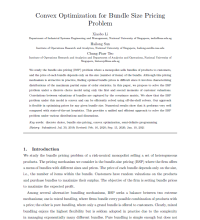
This work package aims to develop for SIA a novel fatigue modelling and prediction model with consideration of individual heterogeneity and complex interactions that exist among fatigue factors to provide more accurate fatigue predictions and to enhance pilot and cabin crew safety and well-being while upholding levels of performance.
Develop data driven methods on fatigue and alertness modelling and prediction with pre- flight, in-flight and post-flight sleep and rest data, with assistance of IoT technology
This project will use modern econometric and machine learning techniques to develop data-driven algorithms for fatigue prediction and modeling. To achieve this aim, pilots and cabin crew will be recruited to put on wearables to collect individual-level data on daily sleep, rest and activities.
The advantage of the wearable data is that it can provide rich real-time data for generating more accurate predictions by taking into consideration individual heterogeneity.
Evaluate the effects of various flight and individual characteristics on aircrew fatigue and related outcomes using econometric methods.
This project will allow SIA to gain more accurate measures of activity, sleep and rest, stress and other related outcomes with the assistance of advanced wearables and sensors.
This study aims to use econometric and machine learning approaches to conduct a thorough investigation of the role of diverse flight and pilot characteristics on pilot health outcomes such as fatigue with the data from advanced wearable devices. With rich data, the team will be able to gain insights into the role of fatigue factors not considered before and explore the complex interactions, which could provide insights into improved fatigue mitigation strategies.
Propose practical suggestions and recommendations on fatigue mitigation as well as crew rostering and evaluate the effectiveness of these interventions.
In this project, the team will design interventions based on the results in Project 1 and Project 2. The team will also prepare guidance on sleep and nap strategies (e.g., timing and duration) for pilots and crew member based on empirical findings in Project 1 and Project 2 and examine the impacts of these suggestions.
Develop novel insights into the effects of cumulative fatigue and evaluate the employee well-being in the long term.
The team will evaluate pilot fatigue over a long time span using modern econometric and machine learning algorithms. In order to achieve this aim, the team will collect and prepare longitudinal data on individual-level flight rostering information, wearable data on daily activities and sleep, sensor data on stress, survey and alertness task responses as well as participant demographics.

Yin Jiamin, Luo Jihao, Teo Hock Hai
Problem Statement: E-Learning, as a prevalent instructional approach in the midst of the COVID-19 pandemic, is
often criticized for reducing motivation and increasing mental fatigue among learners. Despite
the attractiveness of various gamification designs to resolve these issues, there still exists a lack
of comprehensive and integrated understanding of the pedagogic effectiveness of gamification
rewards. Motivated thus, this study assesses and compares four different types of gamification
rewards: unexpected-hedonic rewards, expected-hedonic rewards, unexpected-utilitarian
rewards, and expected-utilitarian rewards. Drawing from self-determination theory and
opportunity cost model of subjective effort and task performance, this study evaluates the effect
of gamification reward type on learning motivation and mental fatigue...
This research is supported by National Research Foundation, Singapore and A*STAR, under its RIE2020 Industry Alignment Fund – Industry Collaboration Projects (IAF-ICP) grant call (Grant No. I2001E0059)